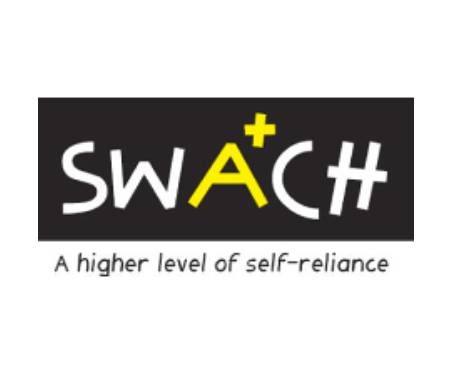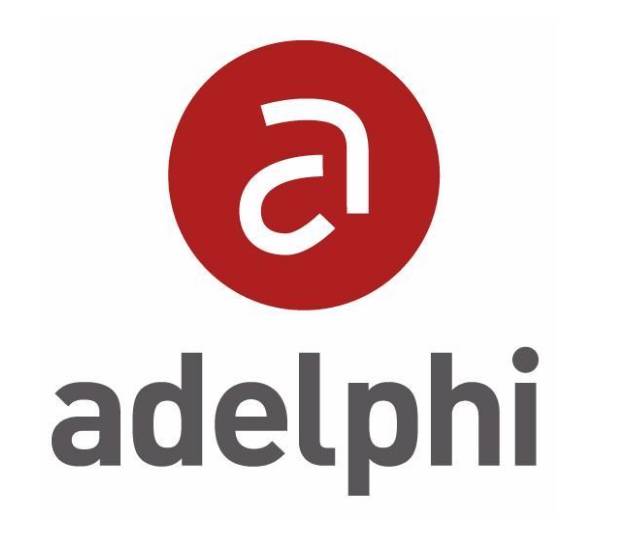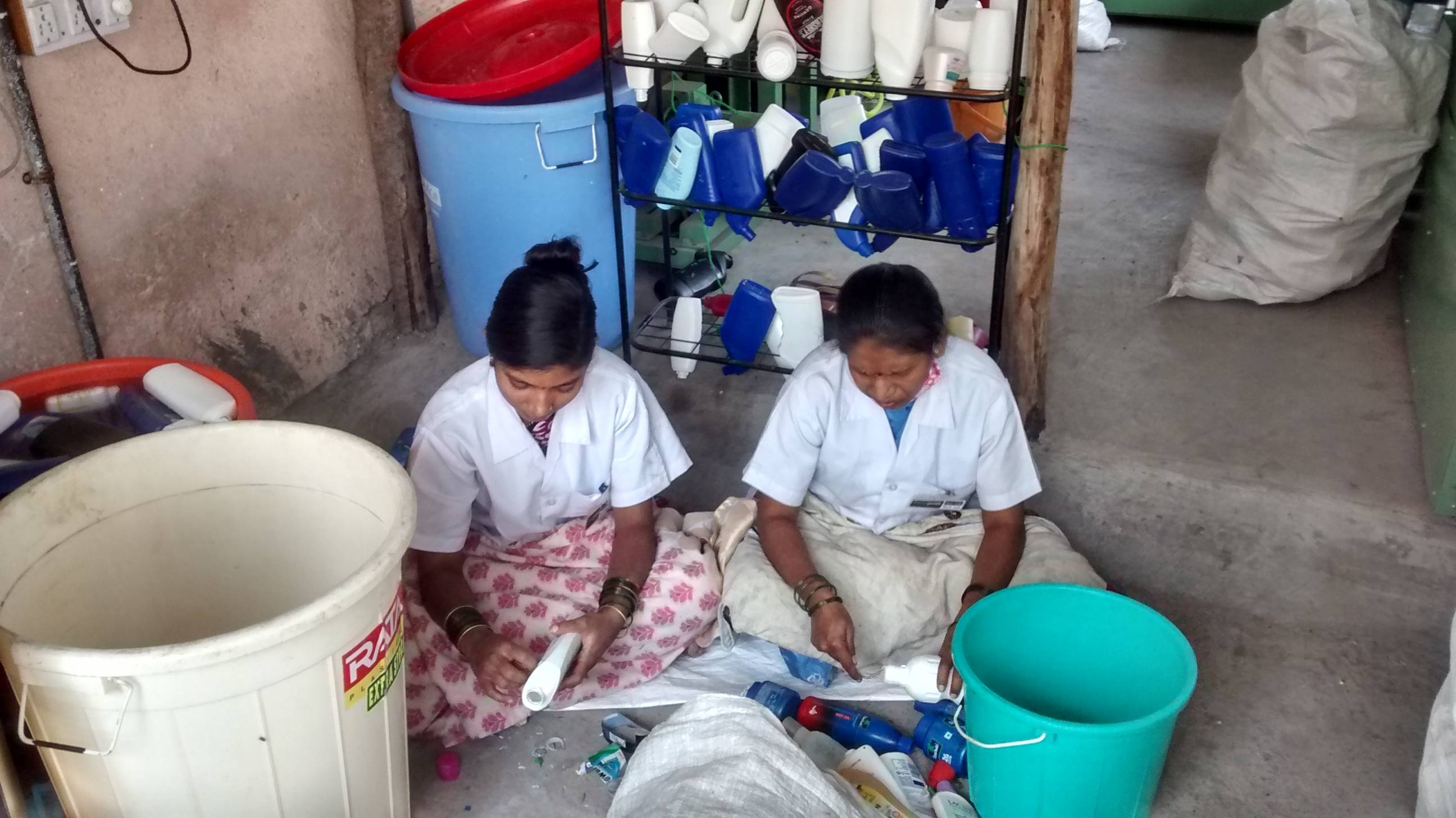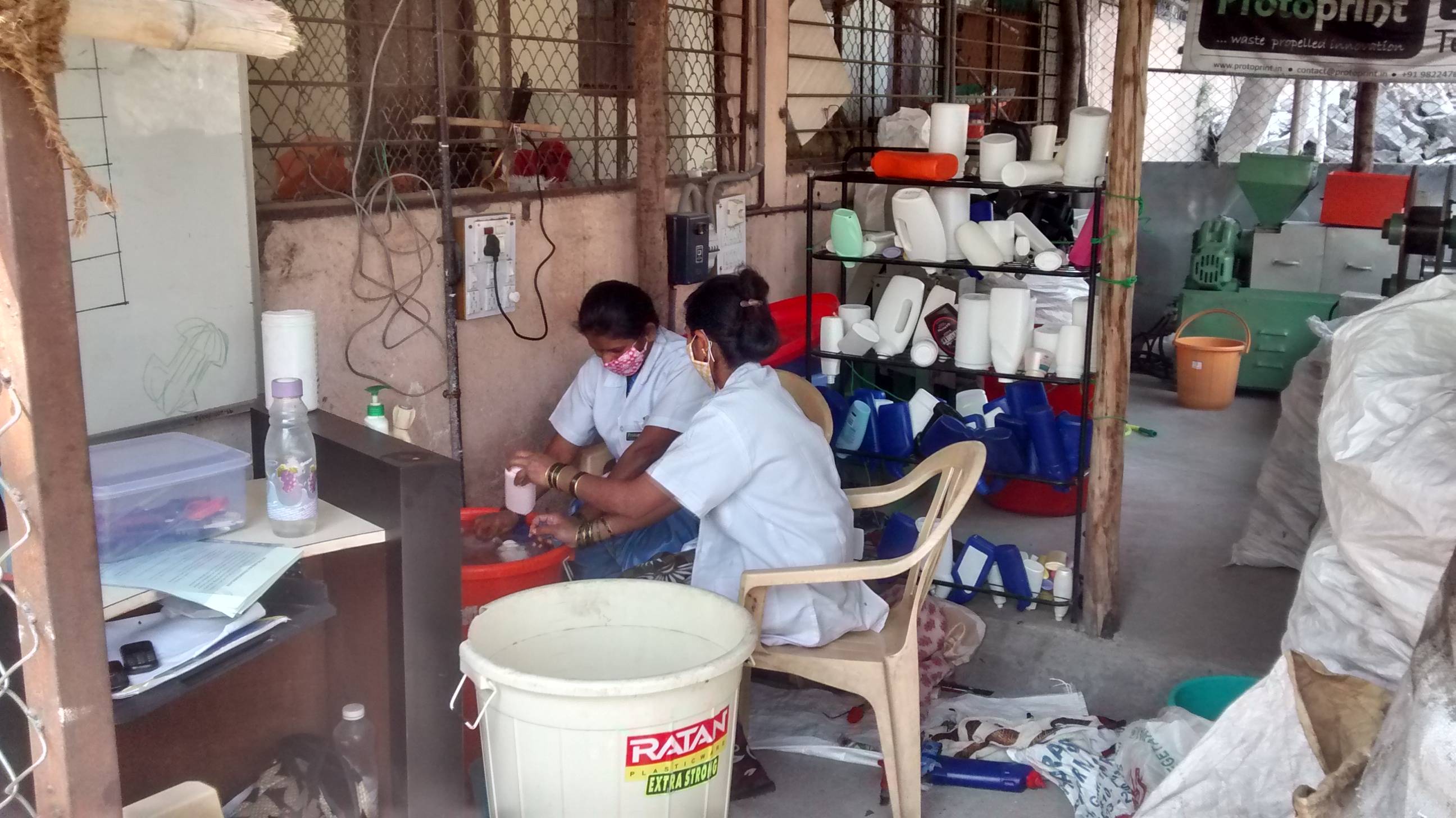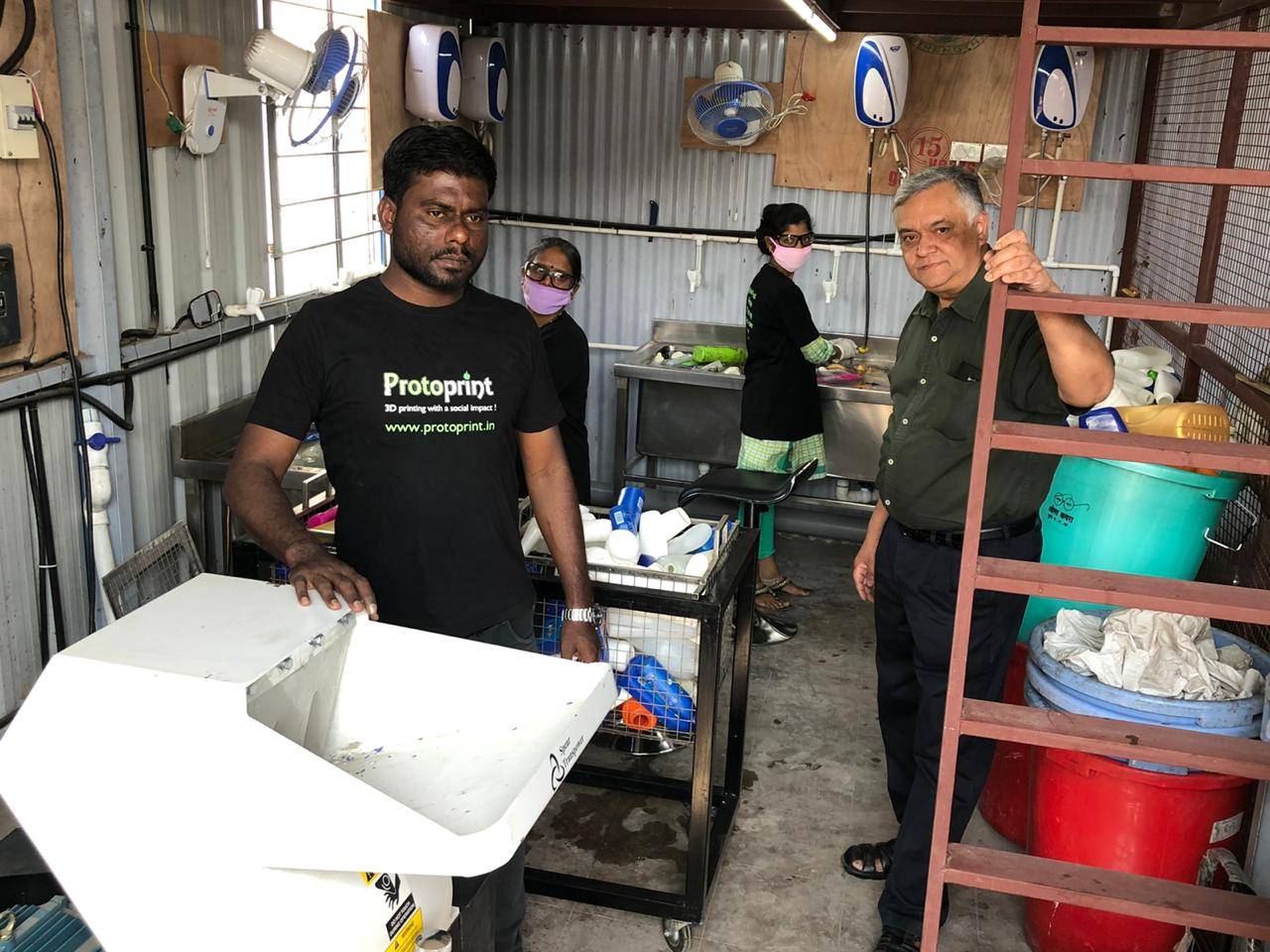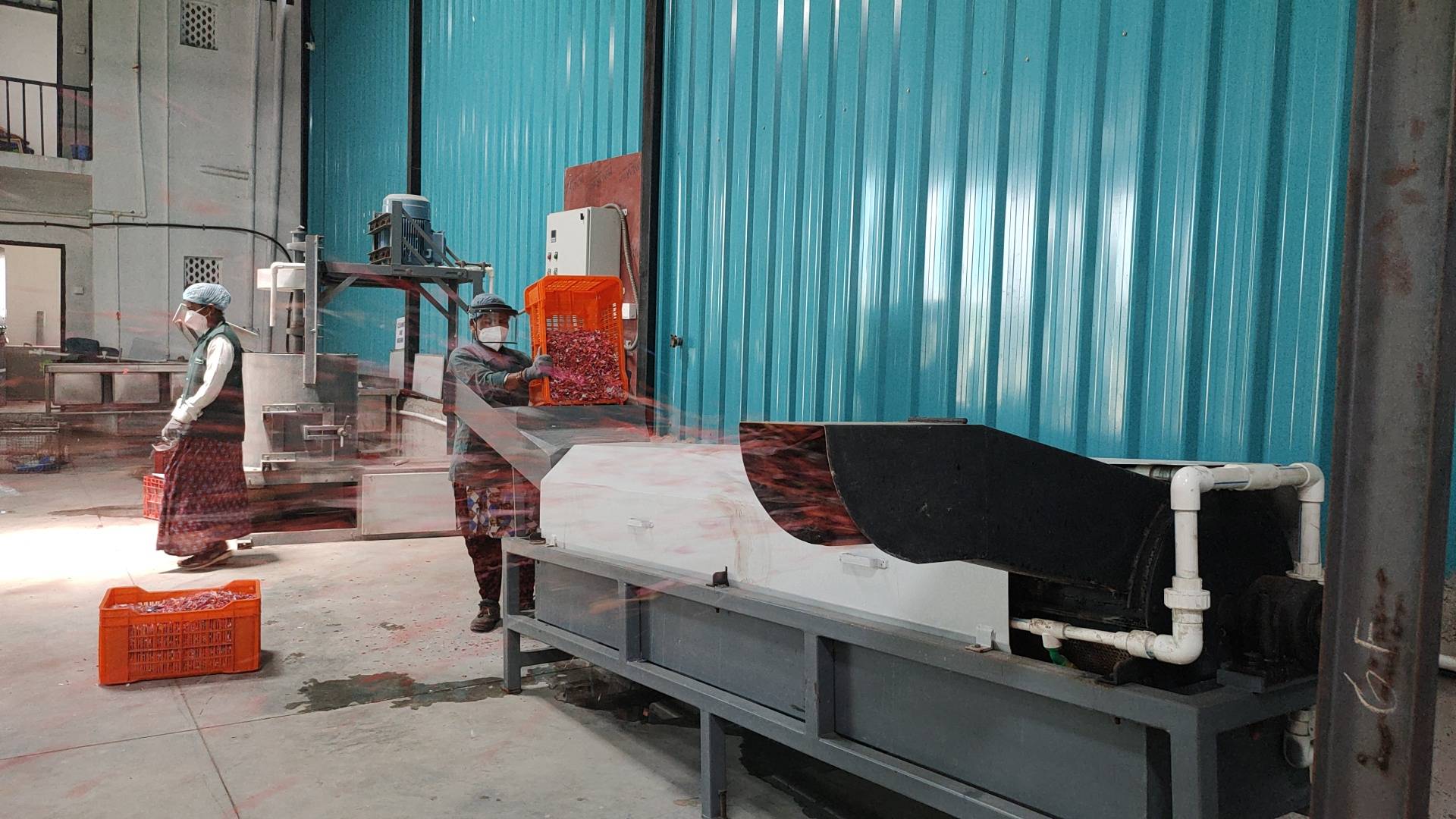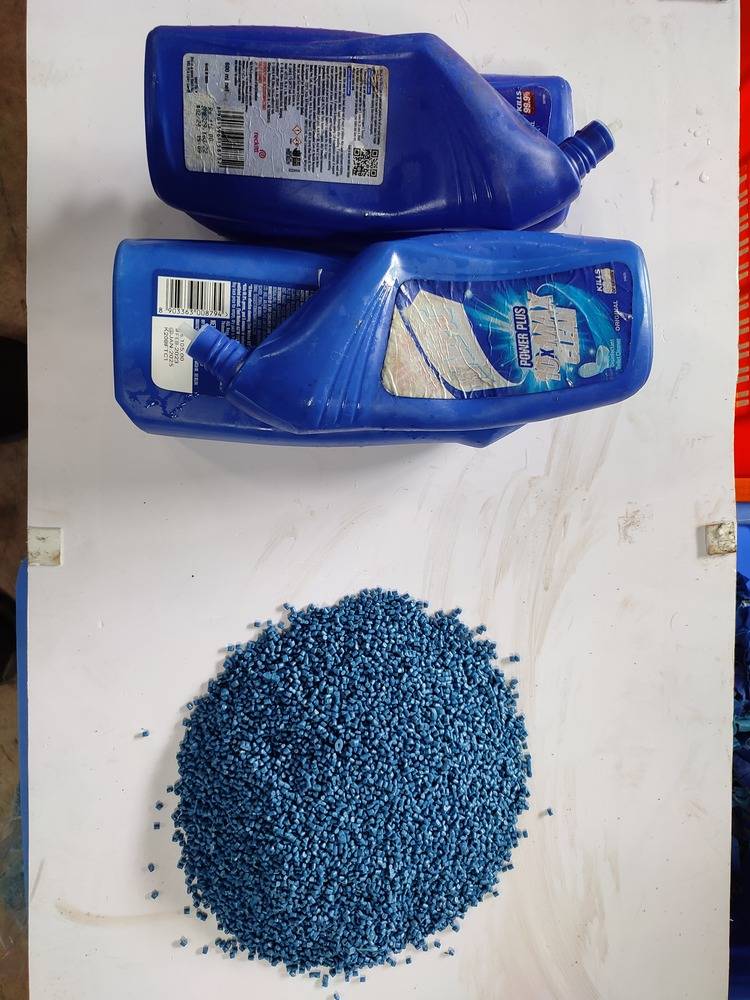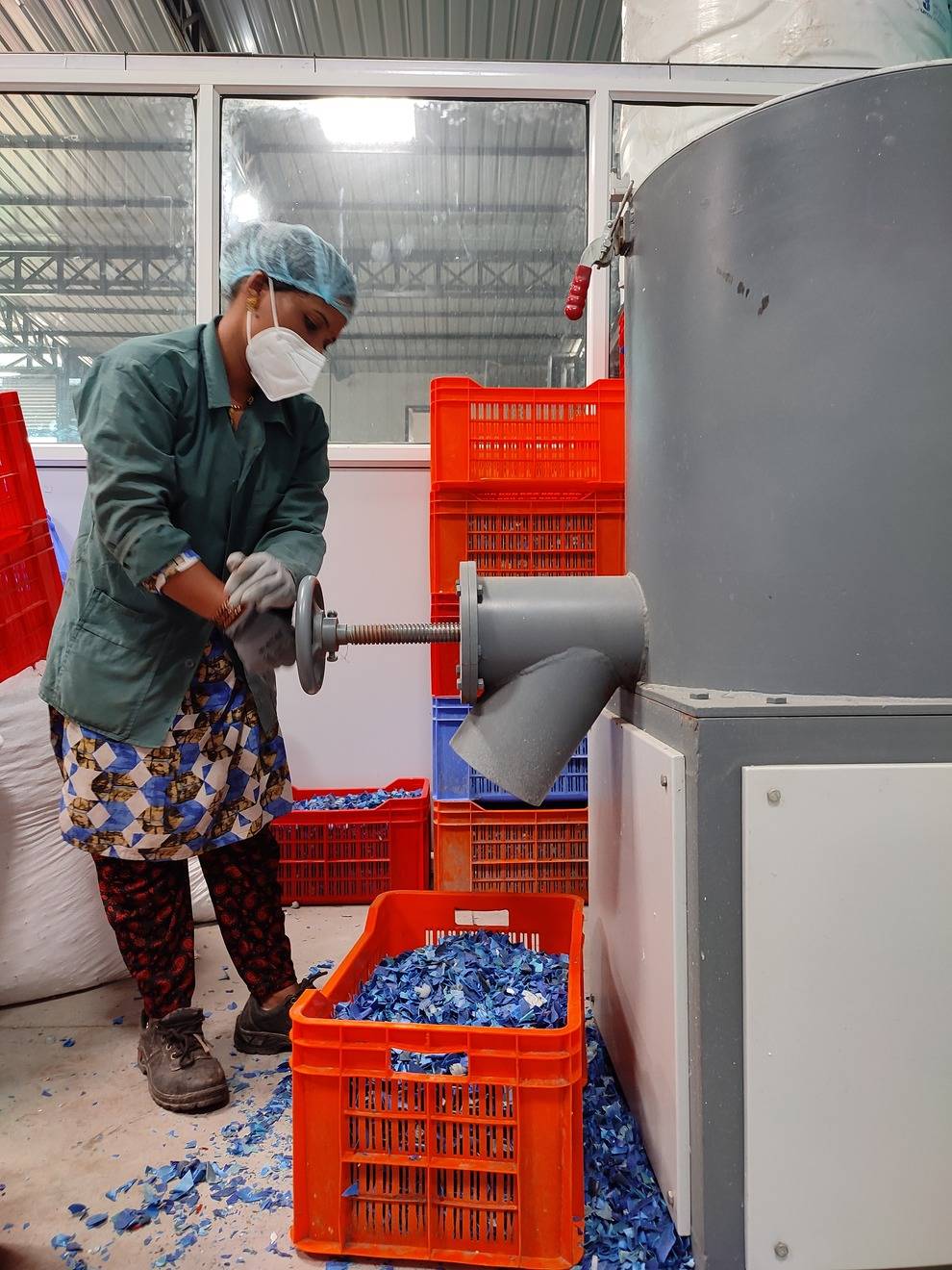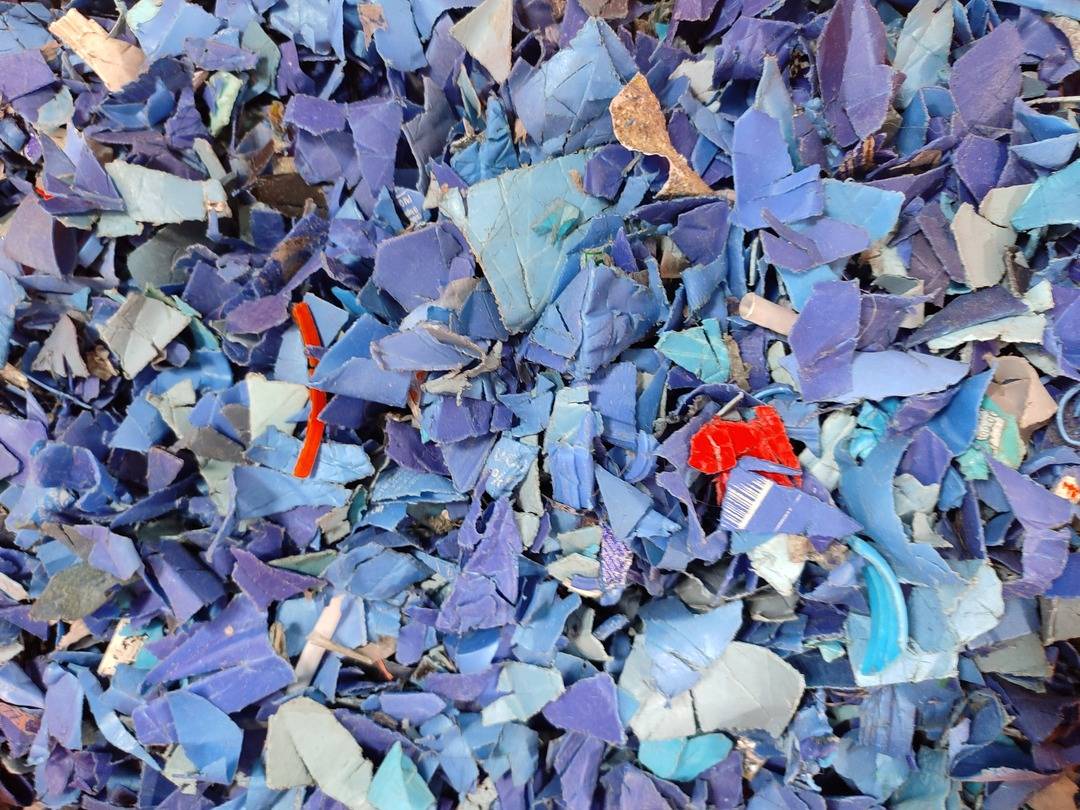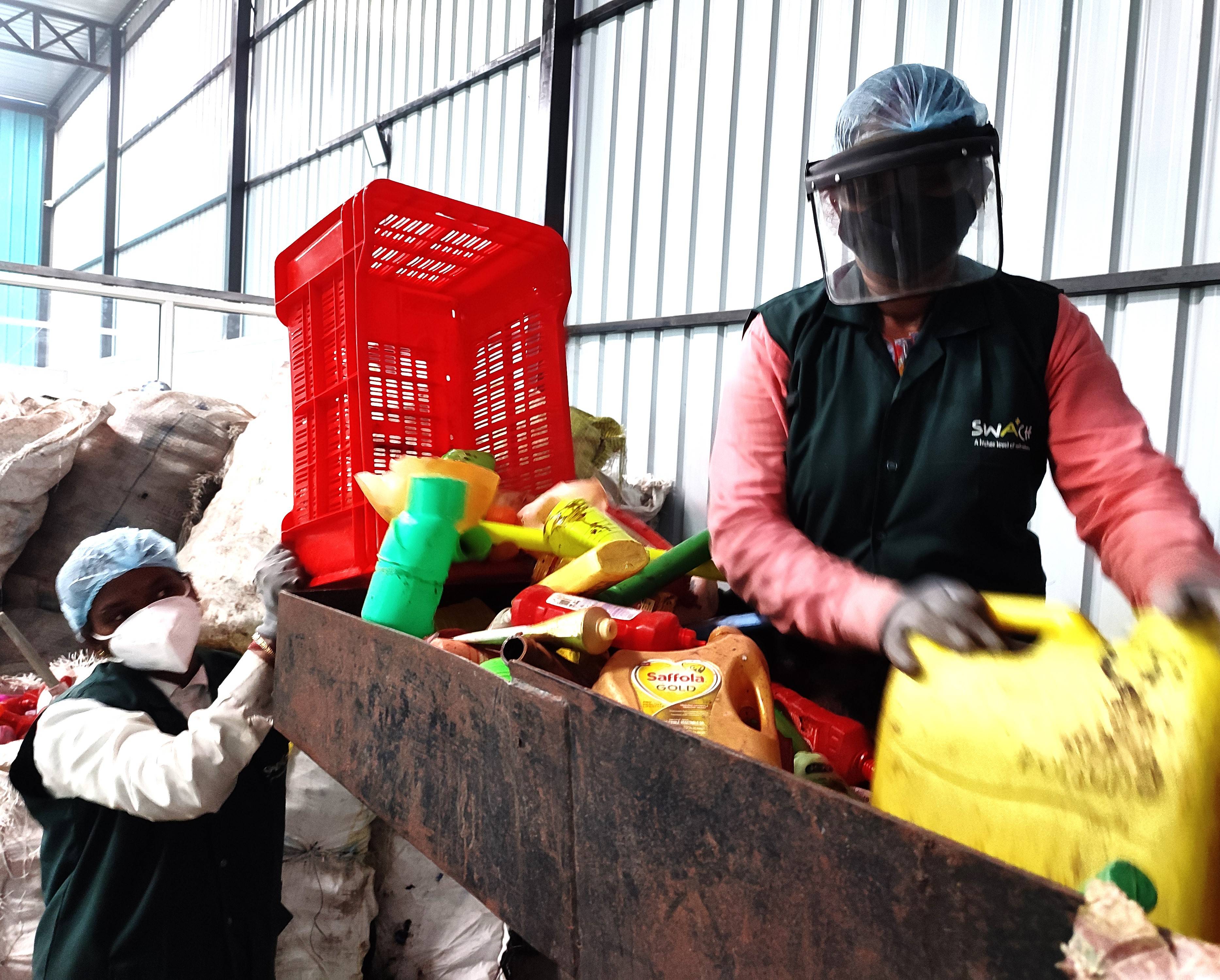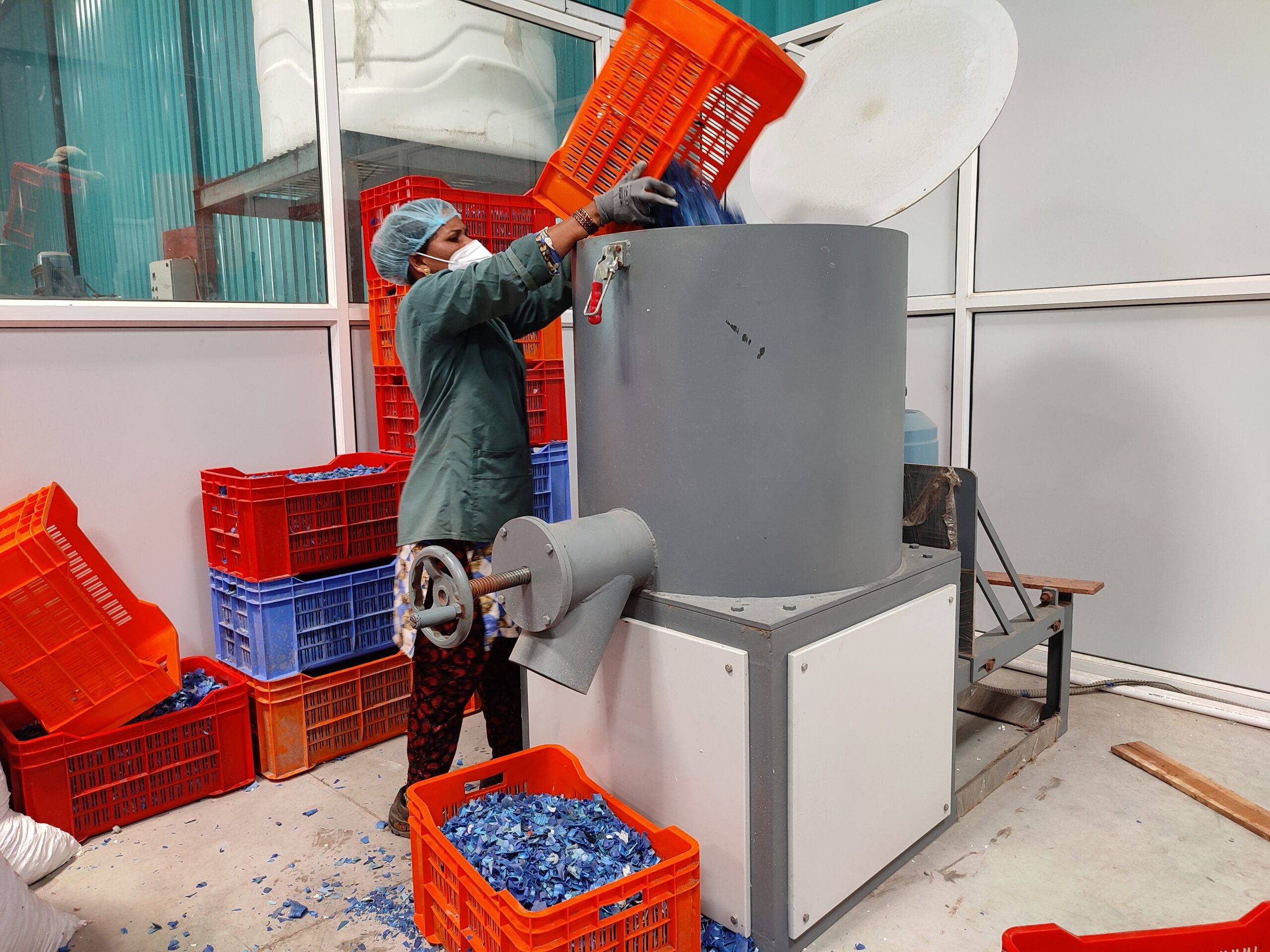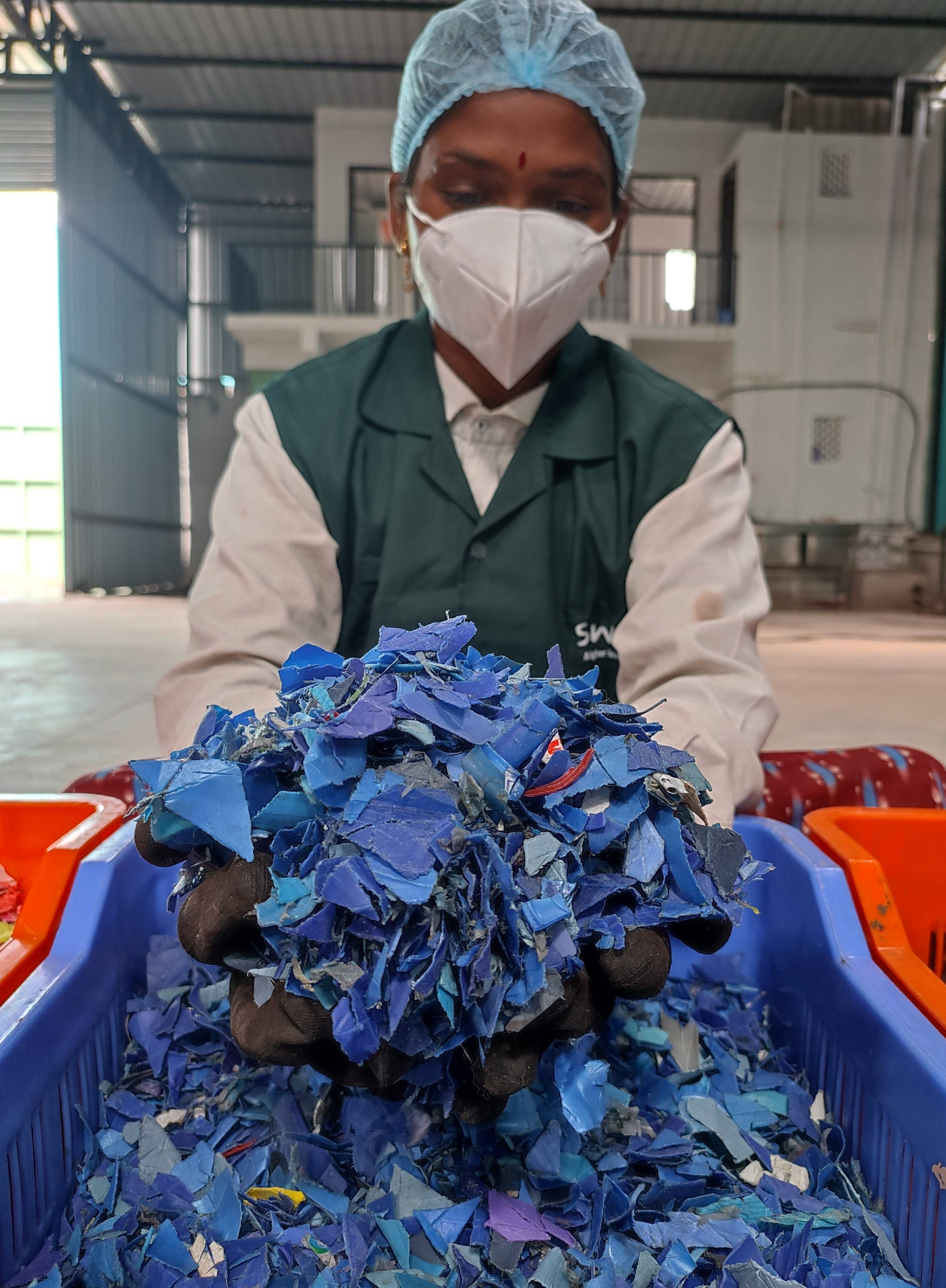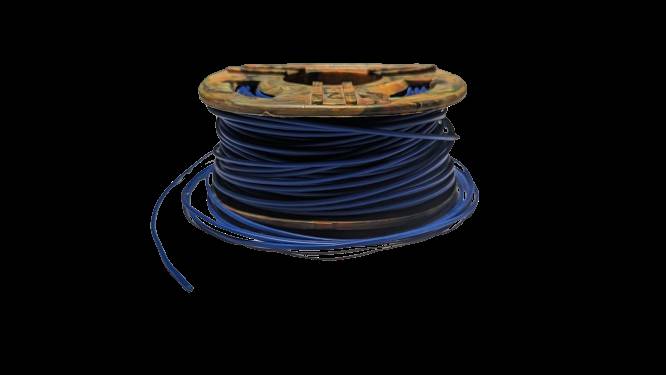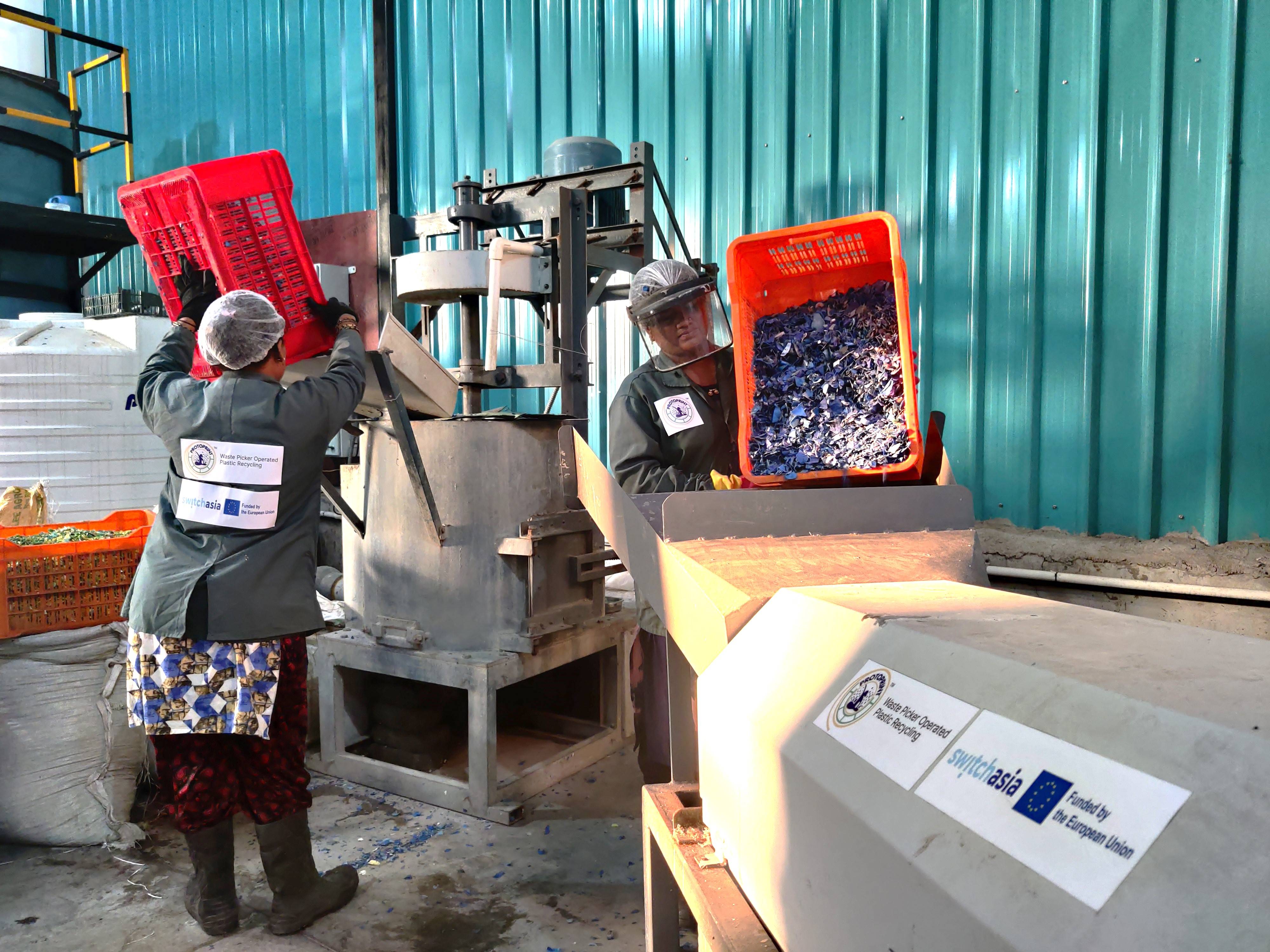
The Challenge
Plastic waste management has been increasingly recognized as a serious challenge in India. A governmental report in 2019 estimated that the country generates around 26,000 tons of plastic waste every day, of which 9,400 tons is left uncollected or littered. The vast majority of this plastic is generated in urban cities, that have grown dramatically in size over the past few decades. Plastic waste in these cities is often unsegregated from other forms of municipal solid waste and needs to be sorted before it can be effectively recycled. This is an extremely labour-intensive process that relies on informal workers, called waste-pickers, to segregate the plastics by hand. Despite the fact that these individuals form the base of the recycling pyramid, they work under dangerous conditions and come into daily contact with harmful materials, including hazardous and medical waste, resulting in much greater risks of injury and disease. They sell the plastic they collect to local middle-men, who in-turn aggregate and sell the material to scrap-dealers and recycling plants. While there is significant value generated in the recycling process, the waste-pickers themselves are poorly compensated for work that they do, often unable to escape poverty. Estimates suggest that there are over a million waste-pickers in India, mostly consisting of vulnerable populations such as migrants, women and children.
Waste plastic has been shown to have a number of negative impacts on the environment and on human health. Plastic run-off into rivers and streams contaminates water sources, kills aquatic life, poisons drinking water and results in the bio-accumulation of microplastics within the food chain, ultimately impacting humans. Plastic waste on land leaches toxic chemicals into groundwater and degrades soil. In India, waste plastic is often burned on street corners, releasing toxic air pollutants. The production of plastics involves the processing of fossil fuels, meaning that plastics have significant carbon footprints over their lifecycle. The growing concern around plastic waste has resulted in an effort to limit the production of virgin plastics through the adoption of an Extended Producer Responsibility (EPR) framework by the government that outlines the obligations that manufacturers and retailers have towards the management of their waste. Yet, progress on this front remains slow, partly due to the informal nature of the recycling industry that limits transparent data collection and integration into formal value chains.
The Objectives
PROTOPRINT is a collaborative partnership that intends to transform the informal recycling sector through the gradual implementation of a systematic and self-sustaining (circular) model for waste plastic recycling. Specifically, the initiative aims to move urban waste-pickers up the recycling value chain and improve livelihoods through the implementation of low-cost technology solutions coupled with community development, creative financing and public-private partnerships that improve plastic waste processing within urban environments and promote the integration of informal waste collectors and informal waste management MSMEs into formal value chains. The project is based in the city of Pune, home to over 3 million residents.
The project seeks to set up an ecosystem that supports the development of self-managed waste-processing units that consists of waste-pickers members and use low-cost technology solutions and standardized processing techniques to convert plastic waste into plastic flakes which can be sold to end users via negotiated agreements with industrial-partners that ensure a fair wage for the individual workers. In doing so, each unit functions as a sustainable, replicable and scalable business that can eventually be leveraged to integrate its informal workers into the formal economy and to provide other benefits such as healthcare, etc. and function as sustainable, replicable and scalable business centres.
In addition to the production of flakes, the PROTOPRINT product team will work in collaboration with a sub-set of the units to further upcycle the plastic into high-value products such as fair-trade 3D printer filament and other similar consumer items with the goal that the development and sale of such products could provide even greater economic mobility to the waste-pickers. The project will work in collaboration with European entities to ensure a standardized and rigorous certification of these products for customers in both the Indian and European markets.
The Way Forward
- Improved wages, labor rights, formalised benefits and upward mobility for urban waste-pickers;
- Social mobility through the empowerment of vulnerable communities like migrants and women that disproportionately contribute to the waste-picker population;
- Improved plastic recycling rates resulting in less littering / land-fill disposal which in-turn results in improved environmental, climate and human health outcomes;
- Formalisation of the recycling sector allowing for more transparency and innovation leading to greater efficiencies.
Relation to European Green Deal, Circular Economy and Climate Change
The European Green Deal provides an ambitious and much needed framework to fundamentally transform its economy in a manner that enables carbon neutrality by 2050. It aims to build a resource-efficient circular economy where economic growth is decoupled from resource extraction. PROTOPRINT was founded on these very same principles and provides a concrete and achievable roadmap to limit the environmental externalities associated with waste plastic in urban Indian environments. Global estimates have suggested that over their life-cycle, GHG emissions from plastics are on the order of 1.7 Gt of CO2-equivalent units (CO2e). This is more CO2e than was emitted in 2017 by industrialized countries such as Germany, Italy or France. Studies estimate that India produces over 26000 tons of plastic waste every day, a large amount of which is not recycled. Furthermore, this amount is projected to increase dramatically in the coming years as the market for consumer goods rises. Appropriately recycling as much of this material as possible while limiting virgin plastic production is thus a prerequisite step to achieving carbon neutrality and mitigating climate change. By streamlining urban recycling and actively engaging with large producers of consumers plastics through the Extended Producer Responsibility (EPR) framework, the underlying goals of the project are in alignment with the broader environmental and climate priorities of the EU.
VIDEO
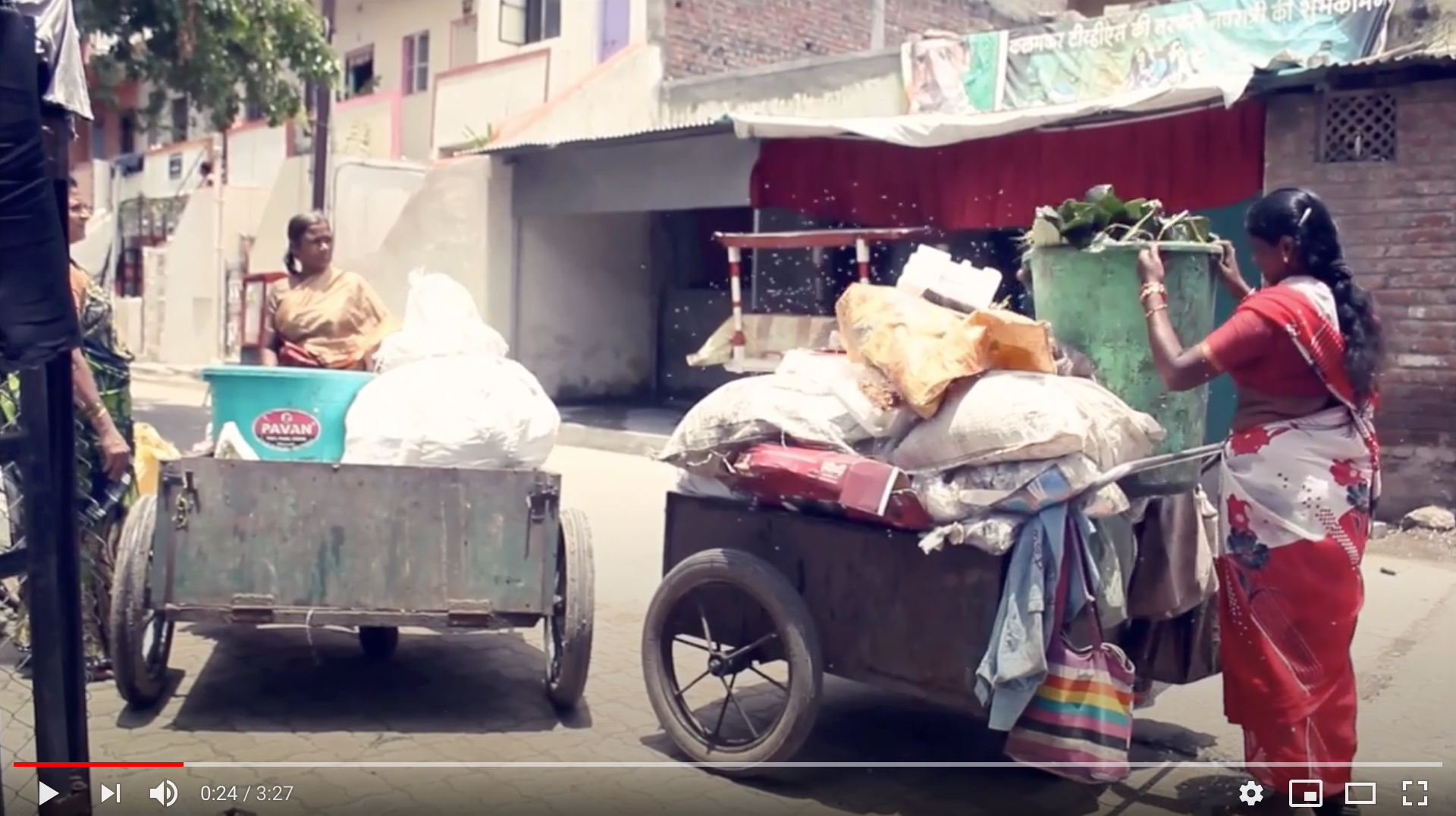
Duration:
2020-August 2026Total Budget:
EUR 1.416.348 (EU contribution 80%)Contact Detail:
Jayant Pai, Project Manager
Kashtakari Panchayat Trust, Pune, India
5 Pleasant Apartments, 80/2/2 Baner Road
Aundh, Pune 411007, India
Lead Partners
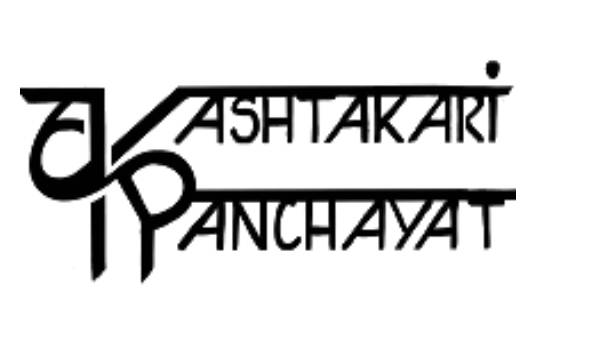
KASHTAKARI PANCHAYAT TRUST (PUNE, INDIA)
Partners
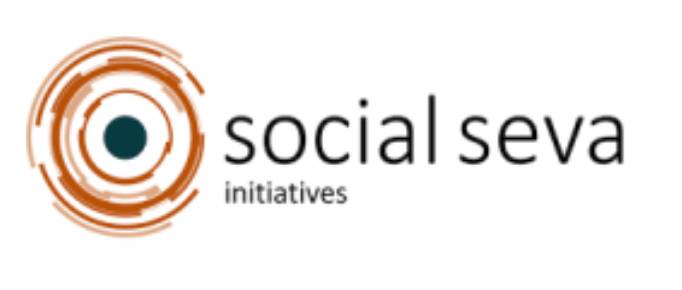
SOCIAL SEVA INITIATIVES (PUNE, INDIA)
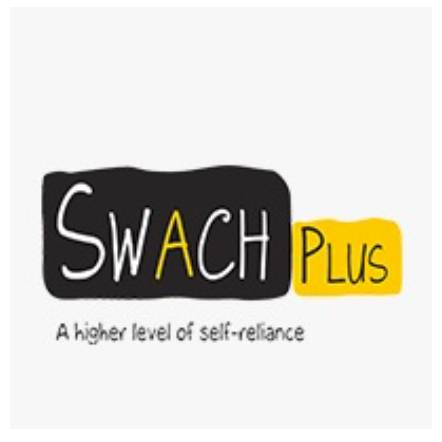
SWACH PLUS SEVA SAHAKARI SANSTHA MARYADIT (PUNE, INDIA)
